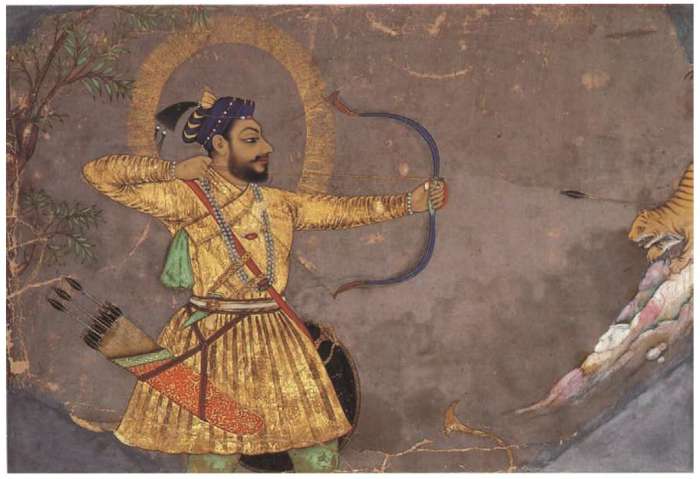FWP:
SETS
ARCHERY: {6,2}
IDOL: {8,1}
JIGAR: {2,1}
TESTING: {4,4}
The first line lays down the conditions for a test of archery: lodging the arrow in the heart would be good; sending it straight on through the liver would be better. But what is the larger context in which the archery-test is to take place? We have to wait for the second line to inform us.
Then the second line begins with the beautifully chosen word ;Gara.z . In such a position at the start of a sentence, it almost always works adverbially, meaning something like 'in short', 'in a word', 'to give you the gist'. That's how we initially read it, and that sense works perfectly for introducing the general purpose, neutrally stated, that the specific criteria in the first line are meant to serve.
But on closer inspection the literal meanings of ;Gara.z (see the definition above) also come to mind, since the grammar of the second line is perfectly framed to admit them. Thus the archery-test may also be seen as an 'object' or 'purpose', as a 'want' or 'need', as an 'interest' or 'concern'. Suddenly the lover's perspective looms large. On this reading, the first line looks not abstract, but urgent, as though the lover is urging the beloved to take aim more effectively, since his ;Gara.z is a matter of life and death. But then, of course, which does he want-- the swift death of an arrow right through the liver, or the frisson of an arrow lodged in the heart?
Alternatively, the ;Gara.z could be that of the beloved, who is so indifferent to the fate of her lover that she thinks of him entirely in terms of target practice.
On the positioning of the two organs-- apparently in a line, with the (less vital) heart in front-- see {20,4}, in which the same two possible arrow-targets appear.

Nazm:
That is, it should definitely lodge in one or the other of those targets. (230)
== Nazm page 230